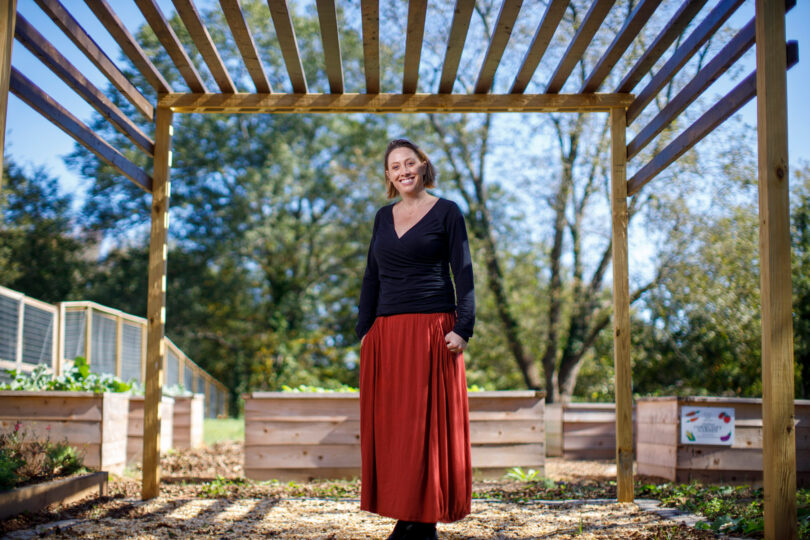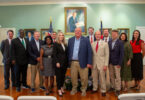When she became a summer intern for Athens Land Trust in 2002, Heather Benham MHP ’03, JD ’03 never imagined that she would become the executive director that would lead the organization through a global pandemic.
Athens Land Trust works to provide affordable housing and sustainable land use in the community. Through the pandemic, the organization has helped hundreds of people in Athens with funds to pay rent, utility bills, and trips to the grocery store.
During her internship, Benham fell in love with the organization and the community it served and never looked back. After joining the staff, Benham worked her way up the organization, first as project manager, then housing director. In 2013, she was named executive director.
Athens Land Trust provides more than just affordable houses. Educational programs like housing counseling, homebuyer education, and youth development programs help community members meet clients’ needs on a daily basis.
“We do very intentional work in neighborhoods. Residents tell you what their needs are, and it’s not always what you’re already doing,” Benham says.
But like everyone else, the land trust has had to adapt to the global pandemic to find new ways to support the community. The organization’s West Broad Farmer’s Market, a weekly market that supports small businesses, was one of the areas immediately affected by the pandemic.
Large gatherings were out of the question, so Benham and the land trust had to figure out a way to support their vendors and maintain safety.
“We trained our vendors on how to post their products online,” Benham says. “Everything from teaching them how to take photos of their products to how to make sales.”
Soon the businesses went online and had their products available for contactless pickup.
The organization adjusted other programs too, moving all the youth programs outdoors and adding social distance. Staff are also ready to meet community members on their porches to make copies of documents they needed.
Benham says the pandemic has increased the amount of social services and funding support that the organization is providing, and the reaction from the community shows how much it’s needed.
“It’s overwhelming to know the struggles of what people are going through,” Benham says. “The pandemic has impacted jobs and people that you might not think about, so it’s great to be able to help people that really need it.”








